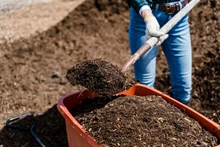
A recent study warns that taking Vitamin C and Vitamin E supplements can be risky for lung health as they may promote the growth and spread of lung cancer by stimulating blood vessel formation in tumours. However, the researchers recommend that lung cancer patients should not stop taking these supplements but should be cautious about their dosage.
The study, led by Martin Bergö from the Karolinska Institute in Sweden, builds on earlier findings linking these supplements to lung cancer metastasis in mice. Increasing antioxidant doses in mice resulted in more blood vessels forming in tumours, which could potentially contribute to tumour expansion and metastasis.
Side Effects Of Vitamin C Supplements
Consuming excessive Vitamin C supplements can result in various side effects, including heartburn, nausea, headaches, stomach cramps, diarrhea, and the formation of kidney stones. Health experts caution that taking doses exceeding 2,000 milligrams per day may elevate the risk of experiencing diarrhea and developing kidney stones.
Side Effects Of Vitamin E Supplements
Overconsumption of Vitamin E supplements can result in side effects such as dizziness, fatigue, weakness, rash, and thrombophlebitis (vein inflammation due to blood clots). Multiple studies have indicated an elevated risk of hemorrhagic stroke in individuals using Vitamin E supplements.
How Vitamin C and E Make Lung Cancer Worse
The ongoing research and debate surrounding the notion that vitamin C and E might exacerbate lung cancer highlights the complexity of their relationship with cancer. Here's the essential information to keep in mind:
-
Antioxidant Properties: Vitamin C (ascorbic acid) and vitamin E (tocopherol) are both antioxidants, which means they can help protect cells from damage caused by free radicals. Free radicals are unstable molecules that can damage DNA and other cellular components, potentially leading to cancer.
-
Cancer and Antioxidants: Some studies have suggested that high doses of antioxidants, including vitamins C and E, might interfere with cancer treatment and promote the growth of cancer cells. This is because cancer cells can also use antioxidants to protect themselves from the oxidative stress induced by treatments like chemotherapy and radiation therapy.
-
Mixed Research Findings: The relationship between vitamin C, vitamin E, and cancer is not straightforward. While some studies have shown the potential benefits of antioxidants in cancer prevention, others have raised concerns about their use in cancer patients. Research in this area is ongoing, and results can vary depending on the type of cancer, the stage of cancer, and the specific antioxidants being studied.
-
Individualized Treatment: It's essential to recognize that cancer treatment is highly individualized. What may be beneficial for one person with cancer might not be suitable for another. Treatment decisions should always be made in consultation with a qualified healthcare professional who can assess the specific circumstances and needs of the patient.
-
Dietary Sources vs. Supplements: It's generally recommended to obtain vitamins and antioxidants like vitamins C and E through a balanced diet that includes fruits, vegetables, and other whole foods rather than relying on supplements. This is because whole foods provide a variety of nutrients and compounds that may have synergistic effects and are less likely to cause imbalances.
The relationship between vitamin C, vitamin E, and lung cancer is complex and subject to ongoing research. While there are some concerns that high-dose antioxidant supplements may interfere with cancer treatment, it's essential to make treatment decisions based on individual circumstances and under the guidance of a healthcare professional. A balanced diet rich in fruits and vegetables is generally a safe way to obtain these vitamins without the risks associated with high-dose supplementation.











